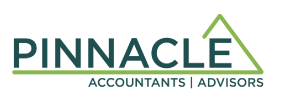
Notes on Canada’s 2023 Budget
Canada’s Deputy Prime Minister and Finance Minister, Chrystia Freeland, delivered the 2023 Federal budget in the House of Commons on March 28, 2023.
The budget calls for a deficit of $43 billion for 2022-23 and slightly lower deficits for each of 2023-24 and 2024-25.
Business and Tax Highlights of the Budget include:
Tax-Free First Home Savings Account
Financial institutions can start offering the Tax-Free First Home Savings Account to Canadians starting April 1, 2023.
This account is a registered account which allows Canadians to contribute a maximum of $40,000 on a tax-free basis towards a first home. The account will accumulate contribution room at $8,000 per year beginning in the year the account is opened.
Contributions will be deductible against income in the year of the contribution.
Contribution room will not begin accumulating until the account is opened, so consider opening an account right away if you are planning to purchase your first home within the next 15 years. Accounts can remain open for up to 15 years.
Bill C-208 (Intergenerational Business Transfers)
The budget seeks to close certain “loopholes” in the recent legislation allowing individuals to sell shares of Qualified Small Business Corporations to non-arm’s length corporations and use their Lifetime Capital Gains Exemption on the sale.
The proposed changes to Bill C-208 include adding a gradual transfer option based on estate freeze characteristics and introducing several new restrictions.
Employee Ownership Trusts
The budget introduces new rules related to the use of employee ownership trusts (EOTs) to acquire and hold shares of a business. The new rules extend the five-year capital gains reserve to ten years for qualifying transfers, and introduce a new exception to the current shareholder loan rule to extend the repayment period from one to 15 years for amounts loaned to the EOT from a qualifying business to purchase shares in a qualifying business transfer. The budget also exempts EOTs from the 21-year deemed disposition rule that applies to certain trusts.
General Anti-Avoidance Rule
The general anti-avoidance rule (GAAR) is intended to prevent abusive tax avoidance transactions. Where GAAR applies, any tax benefit created by the abusive transaction is denied. The budget includes proposed legislation to amend the GAAR in order to address perceived issues and to modernize and strengthen the rules.
Significant changes include the addition of a 25% penalty, the change of a primary purpose test to a “one of the main purposes” test, and an economic substance rule.
Alternative Minimum Tax
The alternative minimum tax (AMT) is a tax calculation that allows fewer deductions, exemptions and tax credits than the ordinary calculation. Taxpayers are required to pay the higher of the AMT and the ordinary tax calculation.
The budget broadens the AMT through numerous changes, including an increase in the capital gains inclusion rate, disallowance of 50% of deduction for numerous types of expenses, and including 100% of employee stock option benefits.
Other Individual Measures
Grocery Rebate
The budget proposes an increase in the GST credit amount for January 2023 to certain individuals.
Deduction for tradespeople’s’ tools
The budget increases the tradespeople’s tool deduction to $1,000 from $500.
Registered Education Savings Plan
The budget permits increased educational assistance withdrawals.
Written by: Chris Brien, CPA, CA
